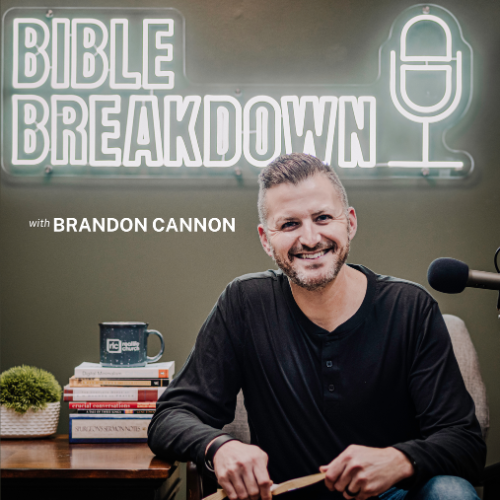
BB Xtra: The Didache Part 4
The Didache: Rediscovering the Early Church's Instruction Manual
Have you ever wondered what life was like for the very first Christians after the apostles began establishing churches across the Roman world? As it turns out, we have a remarkable window into that time through an ancient document called the Didache. In this month's Bible Breakdown Extra, Pastor Brandon walks us through this fascinating early Christian text that served as essentially the first church manual.
The Didache (pronounced did-ah-kay), which literally means "teaching" in Greek, was written either in the late first century or early second century AD. This makes it contemporary with many of the New Testament writings. What makes this document so valuable is that it wasn't trying to establish theology or doctrine - it was purely practical. It provided step-by-step instructions for new Gentile believers on how the Christian life should be lived within community. Think of it as the original "Christianity for Dummies" handbook written by those who had learned directly from the apostles themselves.
What's particularly fascinating about the Didache is how it addresses issues we might think are uniquely modern. This ancient document provides guidance on matters like abortion, baptism, communion practices, and how to discern true spiritual leaders from false ones. In this episode, Pastor Brandon specifically examines chapters 10-11, which focus on communion prayers and how to evaluate traveling preachers and prophets. The practical wisdom here is striking - the Didache instructs believers to judge spiritual leaders not by their eloquent words or spiritual displays, but by how they live their daily lives and whether they seek financial gain.
The context for these instructions becomes clearer when we understand that early Christianity lacked the established denominational structures we have today. Without formal credentials or institutional oversight, early Christians needed practical guidelines for determining who was genuinely sent by God. The Didache offers specific tests: true apostles wouldn't stay in one place extracting resources for more than two days, wouldn't ask for money, and would demonstrate consistency between their public teaching and private behavior. As Pastor Brandon points out, these boundaries protected well-meaning Christians from being taken advantage of by charlatans using spiritual language.
Throughout the episode, Pastor Brandon draws meaningful connections between these ancient practices and modern church life. He shares personal experiences from his childhood watching traveling evangelists interact with his pastor father, noting how his father judged these ministers not by their pulpit performance but by their character around the dinner table. This echoes the Didache's wisdom that true spiritual authority is verified by consistent godliness in all settings, not just public ministry contexts.
The Didache reminds us that the early church was navigating many of the same practical challenges we face today. They were learning how to discern authentic faith from performative religiosity, how to protect vulnerable believers from exploitation, and how to maintain the sacred practices Jesus instituted while adapting to new cultural contexts. By studying this ancient manual, we gain both perspective on our own challenges and timeless wisdom for addressing them.
Let’s read it together.
#biblebreakdown
Get this text to you daily by texting "rlcBible" to 94000.
The More we Dig, The More We Find.




